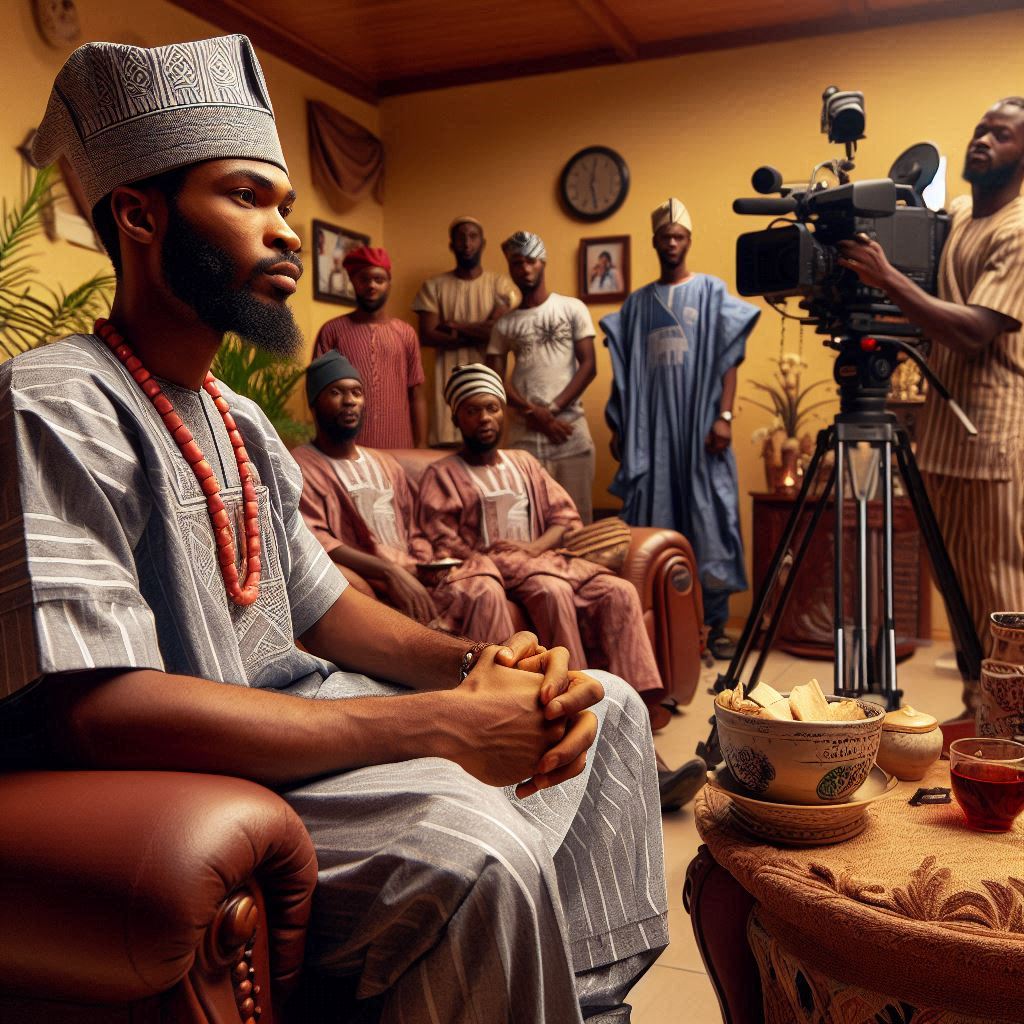Introduction
Religious studies in Nigeria trace their roots to the arrival of missionaries. The early 19th century saw Christian missionaries establishing schools.
These schools introduced formal religious education. They taught Christian doctrines alongside Western education.
Traditional religious practices, however, remained vibrant and influential.
Islamic education also thrived in Northern Nigeria. It predated Christian missionary activities by centuries.
Islamic schools, known as madrasas, focused on Quranic teachings. They preserved Islamic traditions and scholarship.
The interplay of Christianity and Islam shaped Nigeria’s religious landscape.
Post-independence Nigeria recognized the importance of religious education. Universities began offering religious studies programs.
These programs explored Christianity, Islam, and indigenous religions.
The academic approach to religion promoted interfaith understanding. It fostered critical thinking and cultural awareness.
Studying religion in a multicultural society like Nigeria is crucial. It helps in appreciating diverse religious beliefs.
It promotes tolerance and peaceful coexistence. Religion influences various aspects of Nigerian life. Understanding these influences enhances social harmony.
Religious studies provide insight into Nigeria’s rich cultural heritage. They reveal the spiritual dimensions of Nigerian communities.
This understanding is vital in addressing societal issues. It helps policymakers in making informed decisions. It also aids in conflict resolution and nation-building.
The purpose of this blog post is to explore the evolution of religious studies in Nigeria. It will highlight significant milestones in this academic discipline.
The post will discuss the contributions of various religious traditions. It will also examine the impact of religious studies on Nigerian society.
This exploration aims to show the dynamic nature of religious studies. It will reveal how this field has adapted to societal changes.
The blog post will underscore the relevance of religious studies in contemporary Nigeria. By understanding its evolution, we appreciate its current significance.
This knowledge helps in navigating Nigeria’s complex religious landscape effectively.
Pre-colonial era
Indigenous religious practices in Nigeria
During the pre-colonial era in Nigeria, the religious landscape was diverse and rich with indigenous practices that varied across different ethnic groups.
These indigenous religious practices were deeply rooted in the cultural fabric of the society, influencing every aspect of life from governance to social interactions.
Influence of traditional beliefs on society
The influence of traditional beliefs on society was profound, as they shaped the moral and ethical values that governed communal living.
These beliefs were passed down through generations, forming the foundation of cultural norms and customs that defined the identity of each ethnic group.
Role of religion in shaping cultural identities
Religion played a pivotal role in shaping cultural identities, as it provided a framework for understanding the world and one’s place in it.
The spiritual practices of each community were intertwined with their traditions, rituals, and social structures, creating a holistic way of life that was deeply connected to their religious beliefs.
Overall, during the pre-colonial era, religion in Nigeria was a dynamic force that not only provided spiritual guidance but also served as a unifying factor that bound communities together.
The diverse indigenous practices laid the groundwork for the evolution of the religious studies discipline in Nigeria, as scholars began to delve into the unique religious traditions that shaped the country’s cultural landscape.
Read: The Impact of Sociology on Nigerian Society
Colonial era
Introduction of Christianity and Islam by European missionaries
During the colonial era, European missionaries introduced Christianity and Islam to Nigeria. They arrived with a strong zeal to spread their faiths.
Christianity was propagated primarily in the southern regions. Meanwhile, Islam expanded in the northern areas.
These missionaries sought to convert Nigerians to their religions. They viewed their missions as a civilizing force.
The introduction of these religions disrupted traditional African beliefs. However, it also laid the groundwork for significant cultural exchanges.
Establishment of Missionary Schools and Religious Institutions
Missionaries established schools and religious institutions to support their conversion efforts. They believed education was key to conversion.
These schools taught religious doctrines alongside secular subjects. They provided basic literacy and vocational skills.
Many Nigerians embraced these educational opportunities. These institutions also fostered a new elite class educated in Western ways.
The schools became centers of learning and religious indoctrination. They significantly influenced the intellectual landscape of Nigeria.
Impact of Colonialism on Religious Beliefs and Practices
Colonialism profoundly impacted religious beliefs and practices in Nigeria. It imposed new religious frameworks on traditional societies.
Many Nigerians converted to Christianity and Islam, abandoning indigenous faiths.
Colonial authorities often favored Christian converts, providing them with better opportunities. This favoritism deepened the influence of European religions.
However, traditional practices persisted, blending with new religious elements. This syncretism created unique Nigerian expressions of Christianity and Islam.
Colonial rule also introduced religious conflicts, as different faiths vied for dominance.
Transform Your Career with Expert Guidance
Get personalized mentorship consulting that’s tailored to your unique path. Our expert advice is actionable and exclusive.
Get StartedDespite these challenges, Nigerians adapted and integrated these new religions into their cultural fabric.
The colonial era thus marked a transformative period in Nigeria’s religious history.
Read: Comparative Religious Studies in Nigerian Context
Post-independence era
Expansion of educational institutions offering religious studies programs
Following Nigeria’s independence in 1960, there was a notable increase in the number of educational institutions that offered programs in religious studies.
These institutions sought to provide students with a comprehensive understanding of various religions practiced in Nigeria and around the world.
Inclusion of religious studies in school curriculums
Additionally, the Nigerian government recognized the importance of including religious studies in school curriculums as part of the broader education system.
This move was intended to promote religious tolerance, understanding, and coexistence among students from diverse religious backgrounds.
Emergence of indigenous religious movements and sects
Moreover, the post-independence era witnessed the emergence of indigenous religious movements and sects in Nigeria.
These movements often combined elements of traditional African religion with Christian or Islamic beliefs, creating unique religious practices that reflected the country’s cultural diversity.
Overall, the post-independence era marked a significant period of growth and development for the religious studies discipline in Nigeria.
The expansion of educational institutions offering religious studies programs, the inclusion of religious studies in school curriculums, and the emergence of indigenous religious movements and sects all contributed to the evolution of religious studies in the country.
Academic perspectives
Growth of departments of religious studies in universities
In recent years, there has been a noticeable increase in the establishment of departments of religious studies in various universities across Nigeria.
This growth is indicative of the recognition of the importance of studying religion in a diverse and multicultural society like Nigeria.
Research focus on various religions practiced in Nigeria
Nigerian scholars in the field of religious studies have been actively engaged in research that focuses on the various religions practiced in Nigeria.
This research helps to deepen our understanding of the religious landscape in the country and the impact of religion on society.
Contributions of Nigerian scholars to the field of religious studies
Nigerian scholars have made significant contributions to the field of religious studies, both nationally and internationally.
Their research and publications have enriched the discipline and broadened our understanding of the role of religion in society.
Read: Challenges in Teaching Religious Studies in Nigeria

Interfaith dialogue
Efforts to promote religious tolerance and understanding
Interfaith dialogue plays a crucial role in promoting religious tolerance and understanding among people of different faiths.
By engaging in meaningful conversations and discussions, individuals can learn to respect and appreciate the beliefs and practices of others.
This helps to create a more harmonious and peaceful society where people can coexist peacefully despite their religious differences.
Importance of studying different religious traditions in a diverse society
Studying different religious traditions in a diverse society is essential for gaining a deeper understanding of the beliefs and practices of various religious groups.
It allows individuals to appreciate the diversity of religious expressions and promotes a sense of empathy and respect for others’ beliefs.
This knowledge can help to prevent misunderstandings and conflicts based on religious differences.
Role of religious studies in fostering peaceful coexistence
Religious studies play a vital role in fostering peaceful coexistence by promoting mutual respect, understanding, and acceptance of different religious traditions.
Through the study of religion, individuals can develop a greater appreciation for cultural diversity and learn to value the contributions of various religious communities to society.
This can lead to a more inclusive and harmonious society where people can live together peacefully, despite their religious differences.
Read: Cultural Heritage and Religious Practices in Nigeria
Learn More: Best Polytechnics for Mass Communication in Nigeria
Delve into the Subject: Scholarships for Fine and Applied Art Students
You Might Also Like: Government Agencies Hiring Criminology Graduates
Contemporary challenges
Rise of religious extremism and fundamentalism
Religious studies in Nigeria face a myriad of contemporary challenges that shape the discipline in significant ways.
One of the most pressing challenges is the rise of religious extremism and fundamentalism.
This trend can be observed in various religious groups across the country, leading to conflicts and violence that threaten peace and stability.
Influence of globalization on religious beliefs and practices
Additionally, the influence of globalization has brought about a shift in religious beliefs and practices in Nigeria.
As the world becomes more interconnected, traditional religious norms are being challenged and adapted to fit the changing landscape.
This dynamic interaction between local and global forces poses a unique challenge to the study of religion in Nigeria.
Need for critical analysis and interpretation of religious texts
Furthermore, there is a growing need for critical analysis and interpretation of religious texts in the country.
With the diversity of religious traditions and interpretations present in Nigeria, scholars and practitioners must engage in rigorous academic inquiry to understand the complexity of these texts and their implications for society.
In response to these challenges, religious studies scholars in Nigeria are adapting their methodologies and approaches to better address the evolving nature of religion in the country.
By integrating interdisciplinary perspectives and engaging with contemporary issues, researchers are able to provide insights into the role of religion in society and contribute to meaningful dialogues on religious diversity and coexistence.
Overall, the contemporary challenges facing religious studies in Nigeria highlight the importance of continued scholarly engagement and dialogue in understanding and addressing the complexities of religion in the country.
Future prospects
As the discipline of Religious Studies continues to evolve in Nigeria, there are several exciting future prospects that can further enhance the field and push it into new territories.
Potential for interdisciplinary studies in religious studies
One of the key prospects for the future of Religious Studies in Nigeria is the potential for interdisciplinary studies.
By integrating insights and methodologies from other disciplines such as sociology, anthropology, psychology, and history, Religious Studies can provide a more comprehensive understanding of religious phenomena.
Incorporation of Indigenous African philosophies and belief systems
Another important aspect of the future of Religious Studies in Nigeria is the incorporation of indigenous African philosophies and belief systems.
By recognizing and studying the rich diversity of religious practices and beliefs across Africa, scholars can gain a deeper appreciation for the continent’s cultural heritage and contribute to decolonizing religious studies.
Role of religious studies in addressing contemporary societal issues
Religious Studies in Nigeria also has a crucial role to play in addressing contemporary societal issues.
By critically engaging with religious traditions and teachings, scholars can provide insights and perspectives that can help in navigating complex social challenges such as conflict resolution, social justice, and environmental sustainability.
Overall, the future of Religious Studies in Nigeria looks promising, with opportunities for interdisciplinary collaboration, cultural inclusivity, and impactful social engagement.
Conclusion
The evolution of religious studies discipline in Nigeria has been a fascinating journey marked by significant milestones.
Throughout this blog post, we have explored the historical development of religious studies in Nigeria, from its beginnings to its current state.
We have discussed how the discipline has expanded and diversified, incorporating various perspectives and approaches to the study of religion.
It is clear that there is a need for further research and study into the evolution of religious studies in Nigeria to fully understand its complexities.
Continued research in this field will shed more light on the role of religion in Nigerian society and its impact on culture and politics.
Moreover, promoting religious literacy and fostering dialogue among different religious groups is essential in a multicultural society like Nigeria.
By understanding and respecting each other’s beliefs, Nigerians can build a more cohesive and harmonious society.
It is crucial to recognize the importance of religious studies in promoting tolerance, understanding, and peaceful coexistence in Nigeria.
Therefore, we encourage scholars, researchers, and policymakers to continue studying and researching the evolution of religious studies in Nigeria for the betterment of society.
Let us strive to promote religious literacy and dialogue as key components of a peaceful and prosperous multicultural society like Nigeria.




